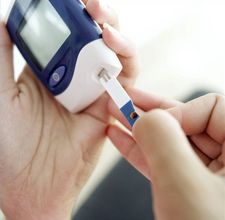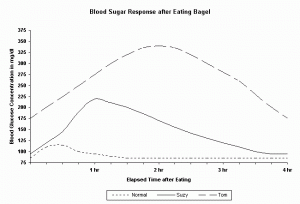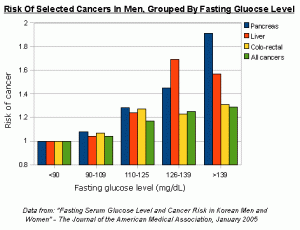What are Normal Glucose Ranges?
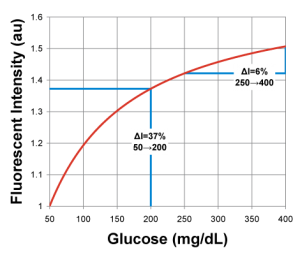
What are the normal, low, and high glucose ranges for a normal or diabetic person? This is an important question for those who have diabetes or those at risk of getting diabetes. Diabetes changes lives of the diabetic and those who care for them, for better and for worse. Diabetes is where the organ known as the pancreas slows or even stops in the production of insulin.
Insulin is a chemical that is used to transform the glucose in the body into fuel that the body can use. Without the insulin to change the glucose into fuel the glucose levels spike to dangerous levels. These increased glucose levels cause damage to the heart, kidney, eyes, and nerves. Heart damage and kidney damage appear later on in life and can have serious effects, while eye damage will show over time with gradual blindness. Nerve damage will appear as numbness or extreme pain in certain areas such as the foot.
So – What are Normal Glucose Ranges?
Normal glucose ranges for an average person are anywhere from 64.8 mg/dl to 104.8 mg/dl. With diabetes the average glucose level ranges is anywhere from 70.2 mg/dl to 140mg/dl. These amounts are normal but the desirable level is 104.8 mg/dl. In order to keep it or get it to this level diet, exercise, and proper equipment is needed. The proper diet consists of no simple sugars such as candy, fruit, and the like. Complex carbohydrates are what are needed as they give lasting energy. So talk to your doctor about the correct diet. Exercise should also be a major part of your daily routine as it can significantly lower your glucose ranges and improve your health. The American diabetes association also approves using a blood glucose meter. The blood glucose meter is a small unit that is used to measure the amount of glucose in the blood. Find out more by CLICKING HERE about the new NON INVASIVE GLUCOSE METERS, soon to be widely available. So talk to your doctor about lowering your glucose ranges.

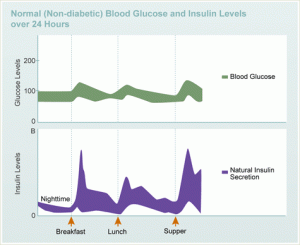 So what is the normal blood sugar level? 64.8 to 104 mg/dl is the normal blood sugar level for the average person. Blood sugar levels are monitored by a blood glucose meter. This is a small unit that measures the amount of glucose in a person’s blood and displays it. The blood is placed in a small plastic strip that is then scanned and the results are displayed on a small window on the side. This allows a diabetic to closely monitor their blood sugar levels. Things that can be done to help lower the blood sugar levels include a normal blood sugar level chart this is where you write down all of your readings that you take and what you were doing prior to it to narrow down activities that should not be a part of your daily life. So knowing what is the normal blood sugar level is very important.
So what is the normal blood sugar level? 64.8 to 104 mg/dl is the normal blood sugar level for the average person. Blood sugar levels are monitored by a blood glucose meter. This is a small unit that measures the amount of glucose in a person’s blood and displays it. The blood is placed in a small plastic strip that is then scanned and the results are displayed on a small window on the side. This allows a diabetic to closely monitor their blood sugar levels. Things that can be done to help lower the blood sugar levels include a normal blood sugar level chart this is where you write down all of your readings that you take and what you were doing prior to it to narrow down activities that should not be a part of your daily life. So knowing what is the normal blood sugar level is very important.